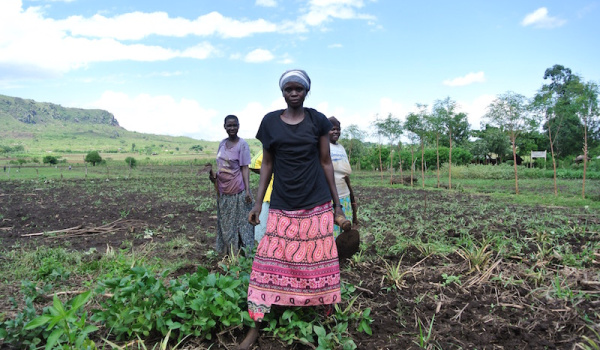Gender equality and equity are matters of fundamental human rights and social justice, as well as a pre-condition for sustainable development. IUCN is committed to furthering gender equality and equity in order to build a Union that understands the importance of equal opportunity and inclusion, and whose policies respect diversity.
The Global Programme on Governance and Rights works towards the achievement of gender equality and women’s empowerment at global, regional and national levels by upholding and enhancing gender-responsive commitments in environmental decision-making and interventions.
Mainstreaming Gender Across the IUCN Programme
The Global Programme on Governance and Rights supports IUCN's Gender Equality and Women's Empowerment Policy by leveraging knowledge, tools, technical support and implementation methodologies to strengthen the institutionalisation of gender equality across IUCN members, offices, commissions and networks.
Knowledge Generation
IUCN has been a thought leader on gender-environment issues for decades, generating knowledge and awareness on critical linkages between gender equality and environmental outcomes. As the global environmental agenda has evolved, IUCN has been at the forefront of producing tailored technical knowledge and guidance to ensure women's empowerment and gender equality is meaningfully integrated into technical fields such as REDD+, Forest Landscape Restoration and indicator support to ensure progress and accountability on gender considerations throughout Sustainable Development Goals.
As a part of its portfolio, the Global Programme on Governance and Rights also manages a resource center on gender and environment issues towards furthering global gender equality and combatting climate change through gender-responsive adaptation, mitigation and resilience building solutions. To access the platform, please visit http://genderandenvironment.org/.
National Implementation
IUCN plays a key role in supporting countries and their stakeholders to improve their capacities for and commitments to gender-responsive action across climate change, biodiversity, desertification and degradation, and other sustainable development spheres. National climate change gender actions plans (ccGAPs), for example, offer a unique multi-stakeholder, cross-sectoral and participatory methodology and process to unite national commitments on gender and climate alike, toward improved, coherent outcomes. IUCN also provides sector-specific training, technical support, and capacity building to strengthen systems-wide awareness and skills for gender mainstreaming across environmental arenas—as well as the inclusion of environmental issues in major women’s rights and gender equality arenas.
Global Policy and Standards
Recognising that gender mandates at the global level create enabling conditions for national-level action, IUCN has been a key player driving attention to gender issues in international environmental policy since before the Earth Summit. For example, IUCN technical support to Parties and stakeholders has resulted in the adoption of Gender Action Plans across the Rio Conventions and a gender resolution under the Ramsar Convention. IUCN also informs environmental decision-making by drawing on its knowledge products and experience with national implementation.
GPGR provides a key technical support function to the Secretariats of the UNFCCC, CBD and UNCCD, as well as to donor and regional banks such as African Development Bank, to implement their gender-responsive mandates. It further provides technical information on environmental and sustainable development topics to key women's empowerment and gender equality processes, including those related to the Beijing Platform for Action and the SDGs.


